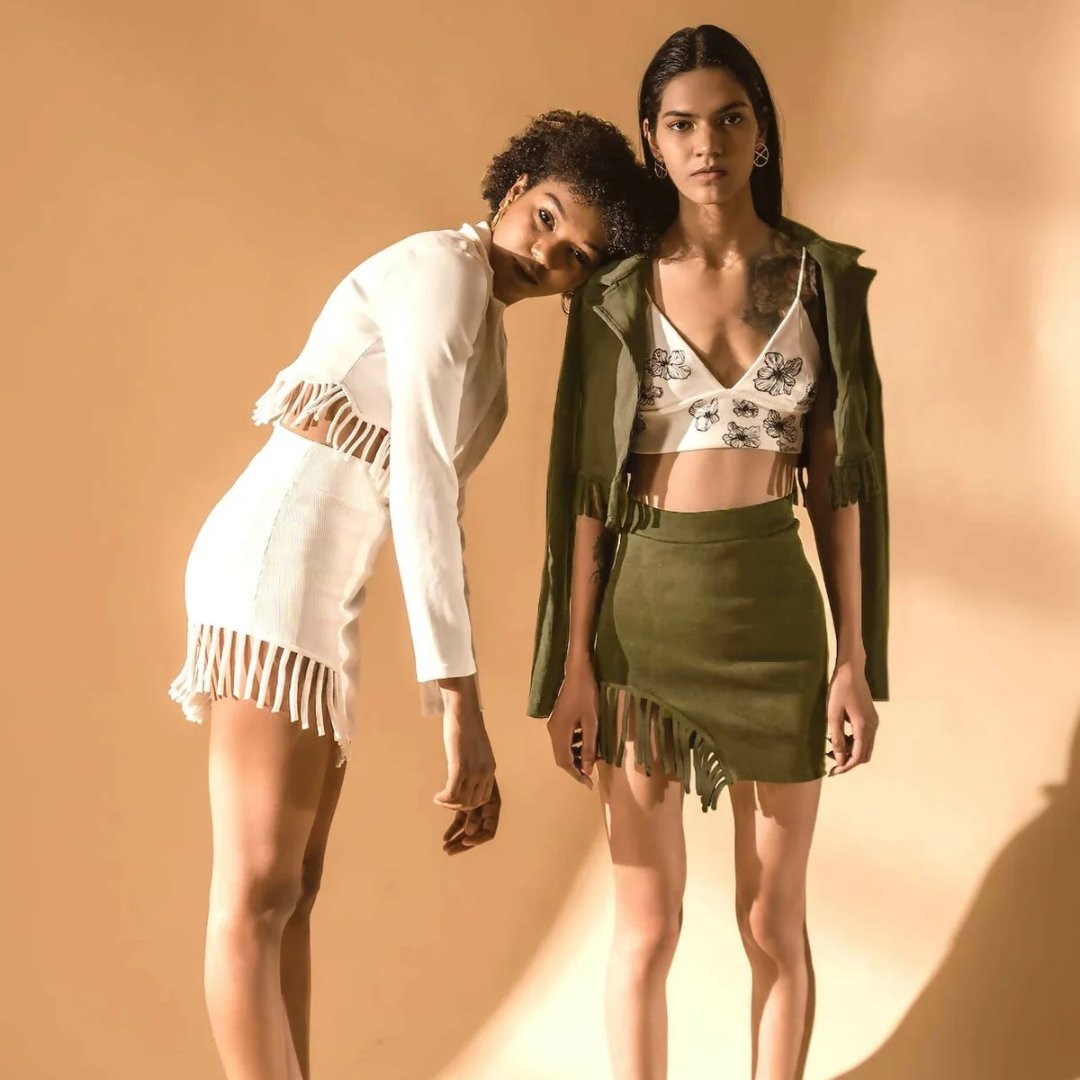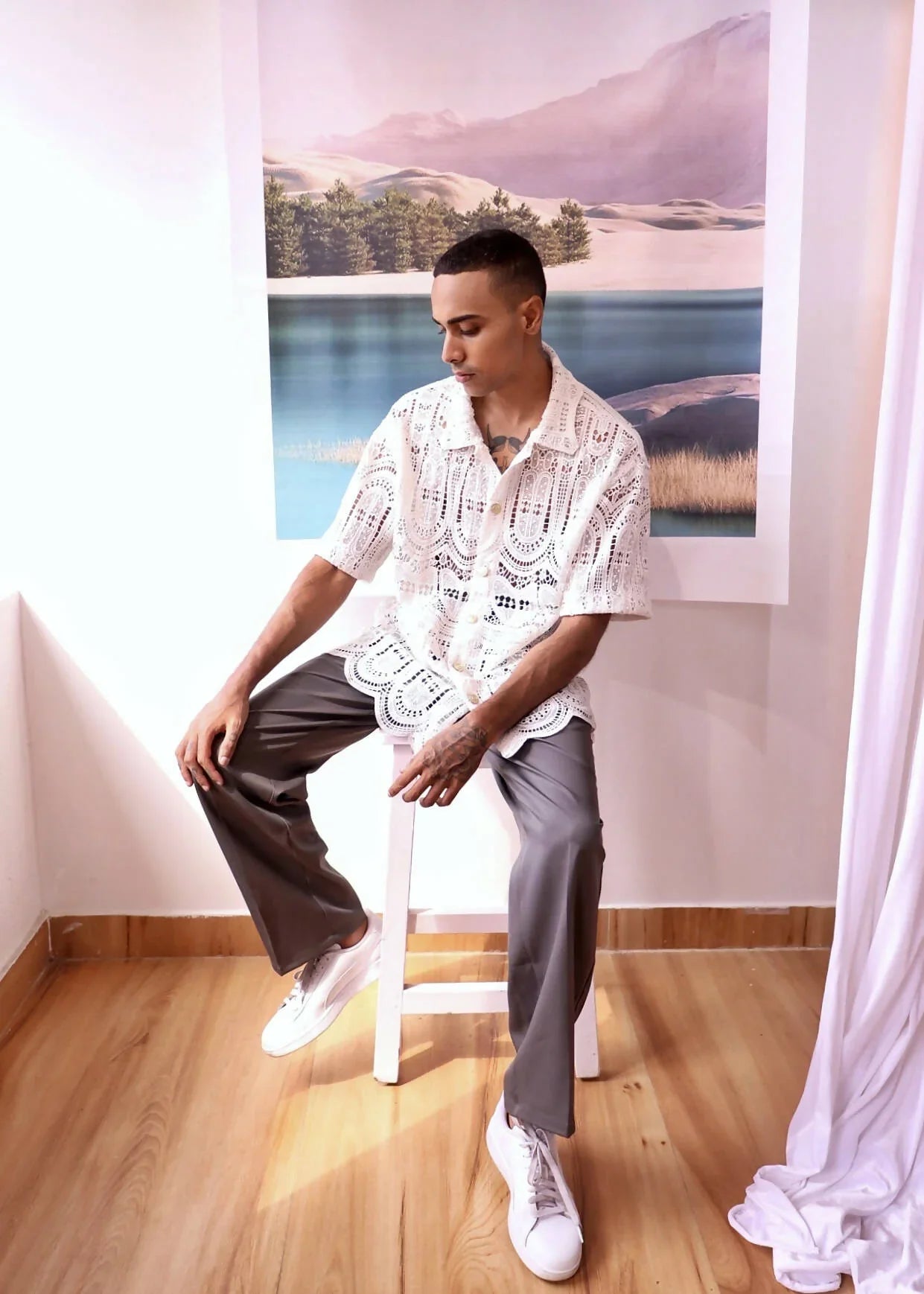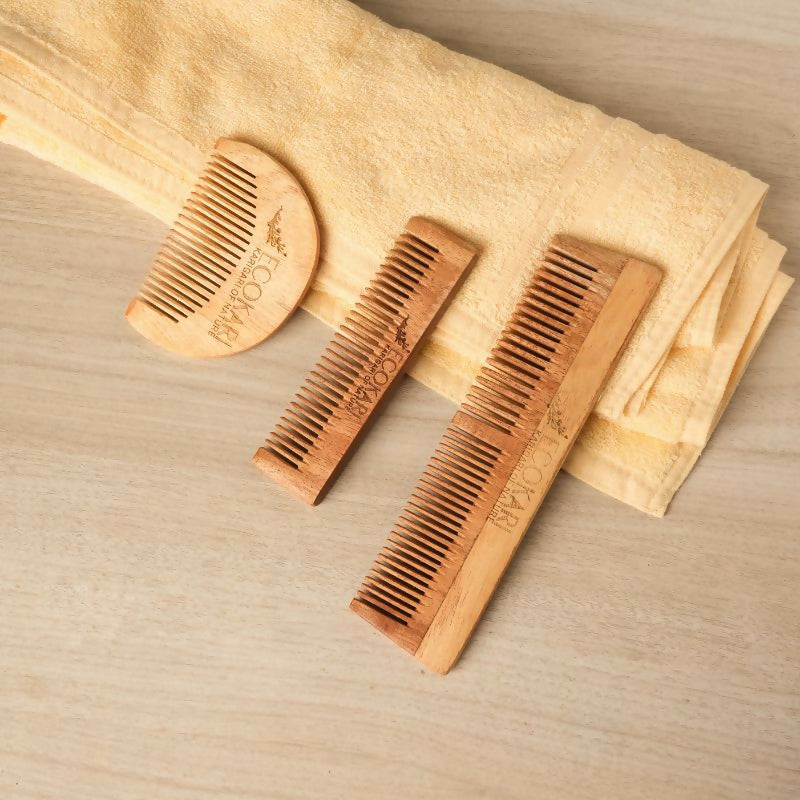Transmuta Interview
REFASH: What made you start Transmuta? Was there a defining moment that you can recollect?
Lucas: The desire to work with upcycling emerged in both of us (Lucas and Yasmin, brand founders) in our professional experiences prior to Transmuta. We worked in two different huge brands, and there, we realized that the standard fashion business model is not sustainable, neither environmentally nor socially. And it was when we first came into contact with an upcycling brand that we realized that we could use this tool and transform clothes in our way, using sophisticated raw material, contemporary design and exquisite finishes.
R: Tell us a little about your background?
L: Since I was little I wanted to be a stylist. I was born in Foz do Iguaçu - Paraná and moved to the capital Curitiba, Brazil at the age of 18 to study fashion design. I worked as a clothes salesman to pay for my studies, and it was in one of the stores of the leading brand in the Brazilian luxury market, Animale (www.animale.com.br), I made a career and aimed for a position at the creation team of the group’s premium brand, A.Brand (www.abrand.com.br). When I graduated I got a position of a fashion assistant of the brand's director in Rio de Janeiro, where I lived for 2 years and learned a lot about fashion, creation and market. I returned to Curitiba, worked as a salesman at a Hugo Boss store and connected with my partner Yasmin and started Transmuta.
Yasmin: I always knew that I would work with fashion, at 16 I won my first machine and learned to sew on my own. Since that time I was already upcycling without knowing the term.
I moved from my hometown Itajaí- Santa Catarina, to Curitiba because I felt that there, I could only work with fashion while inside the industry, and as I would like to work in an authorial way, Curitiba is a bigger and had a more open market. Here I graduated in fashion and I connected with Lucas and created Transmuta.
R: What is the design process at Transmuta? Where do you source the garments from?
L: All our clothes are made from other clothes. We look for pieces in bazaars, thrift stores and also receive donations. We analyze the clothes carefully and identify the transformation potential and the amount of fabric available, to create another functional piece with a contemporary design, generating as little leftovers as possible in the transformation.
R: What's your favorite piece / collection till now?
L: They are the pieces of the last collection "textile alchemy". We want to highlight these three looks: maxi parka and skirt made from a discarded inflatable armchair. Bomber jacket and maxi skirt made from two woolen coats with applications that came from a velvet skirt and motorcycle waterproof pants. And skirt and leather top that were originally two leather jackets.


(Armchair upcycled into Maxi parka and skirt by Transmuta)
R: How different is the process of finding the new in the old from creating something new from scratch? What are the challenges?
L: Our process is very different and much more laborious than making clothes in the conventional way. We try to generate as much less left-overs as we can, and look for transforming one piece into another. First we open the piece by undoing all the seams, so we can take advantage of all the fabric available. Then we do a fit study of the new modeling in the available fabrics, and then, here is the most challenging part: to locate the cutouts in a harmonic way with the final piece’s aesthetics. We are always careful with mixtures of materials, finishes and fittings to be sophisticated, as we consider a sustainable luxury brand.
R: How accepting has the Brazilian audience been to your brand?
L: Acceptance has been very good but it is still a developing market, most people don't know upcycling and don't know the importance of sustainable fashion. We believe in the transformations we make by order and tailor-made, where customers bring us their garment to create transformative options and together we decide what the piece will become.
R: With every garment you recreate, you share the initial garment images as well as the process, has this transparency helped you connect with more customers?
L: Yes, this is one of our main differentials, customers love to see the picture of the initial piece in the transformed clothing tag. We realize that the process delights consumers, we intend to show more and more of the production processes on our media.
R: What is the one thing you'd like the world to know about your brand?
L: That we do refined upcycling and that we can make clothes from people's closets last forever.
R: In your opinion, what do you think is the problem with consumption choices in the fashion industry today?
L: The lack of knowledge about the processes of production, the disposable relationship with clothes and consumption as a hobby.
R: What is the biggest misconception about being a sustainable fashion brand?
L: Many people think that sustainable fashion can not be refined or glamorous. We are working on trying to prove that it's possible.

(Co-ord set by Transmuta)
R: Has your relationship with fashion changed as you delve into the world of sustainable fashion?
L: The biggest change was in our consumption habits and in the people close to us. We already had a responsible look at consumption, but after Transmuta, we do not buy any new clothes and encourage people around us to buy local and consume consciously in every way.
R: What's your take on slow fashion and sustainability?
L: We believe it is the natural evolutionary path of society. The fast and disposable fashion consumption is with the days counted, we see this model of consumption, more intimate and permanent, as the way.
R: What's next for your brand?
L: In this second year of the brand, we want to know more about ourselves as a company and expand our markets and have a sales point in São Paulo, the largest city in Brazil, where the public is bigger and more familiar with sustainability issues. And also extend our transformations made by order.
R: With respect to the collection centre, are there any specific type of garments that you collect or all garments?
L: All garments, for now.
--
Check their website here.
Find them on Instagram.






Leave a comment